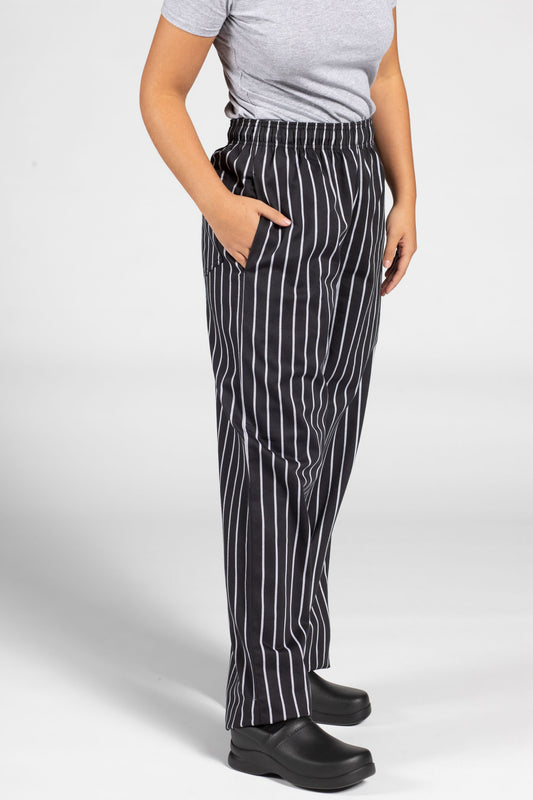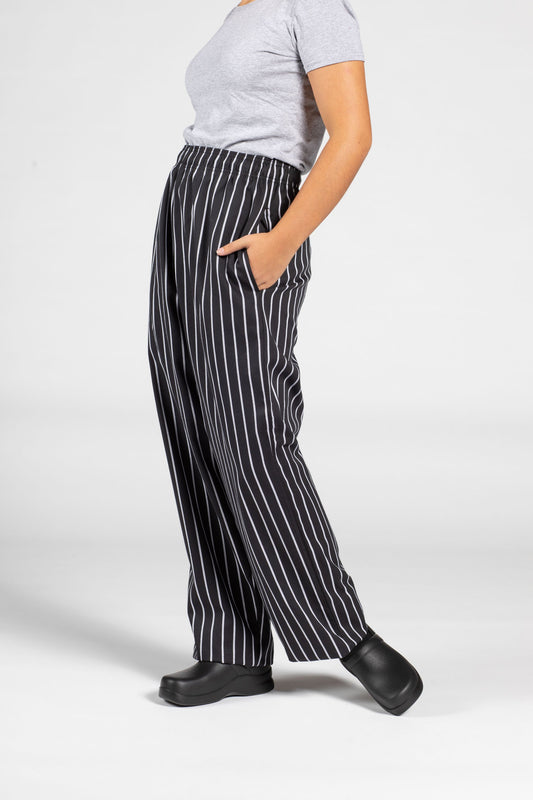For many chefs, their mother is their first culinary instructor. Moms teach us how to wash vegetables, how to hold a knife, how to plan a dinner, and how to clean up the kitchen. They know recipes that have been passed down for generations. Even if your mom isn’t a great cook, she probably influenced the way you cook today.
In honor of Mother’s Day, we’re sharing 9 lessons learned by professional chefs from their mothers. Enjoy (and don’t forget to call your mom)!
1. Keep it simple.

Wolfgang Puck, Austrian-American chef known best for his Asian fusion restaurants and love of French cuisine, says his mother taught him the importance of choosing a few good ingredients.
“When I would cook with her, we would prepare a simple meal from the vegetables we picked in her garden and she would tell me, ‘Use five or six ingredients and take out something. It’s like editing.’ The natural flavors should already complement one another.”
2. Waste nothing.

Mary Sue Milliken is the chef and co-owner of Border Grill, where she creates modern takes on traditional Mexican food. The biggest lesson her mother taught her in the kitchen is how to reduce waste and make do.
“My mom grew up in the depression and it had a huge effect on how she cooked and handled food,” she says. “She taught me to waste nothing! . . . We put washed lettuce and greens with a thin dish towel into airtight plastic bags and they would last for over a week. When all the heads of cabbage in our garden matured in unison, she taught me to make her mom’s sauerkraut. She also taught me to braise unpopular cuts of meat like beef tongue, brisket, lamb neck or breast and turkey thighs.”
3. Food should be fun.

As a judge on Iron Chef and an executive chef at Butter in New York City, Alex Guarnaschelli has very strong opinions about food, many of which she learned from her mom. One of her mother’s most impactful pieces of advice is about her relationship with food and how to choose what to eat.
“Cook and eat what you want—just eat less of it. It’s definitely healthier and easier to manage eating if you have a few bites of something you really want. The idea of balance with food and cooking is complex for a chef. Chefs can struggle with cooking all day and finding time to eat well. I really try to find that balance between what I crave and what is good for me and gives me energy. Some days I ‘fail’ and eat cake. My mother said it from the start, though, and I don’t think depriving yourself of all food ‘fun’ works. It’s about balance. And recreation. Food is not only nourishing but should also be fun and give joy.”
4. Add a little more salt.

Matt Jennings, chef at Townsman and author of Homegrown: Cooking from My New England Roots, credits his mother with teaching him how to season food.
“My mom is an awesome cook, and she is totally driven by comfort foods. I grew up with her Hungarian goulash, Yankee gumbo, beer and beef stew, and more. She once told me to ‘add what you think you need for salt, and then add a little more.’ She is big on seasoning, and I would say her example is how I learned how to season properly. Proper seasoning is one of the most important fundamentals that any chef must teach their kitchen team.”
5. Some recipes shouldn't be changed.

Shahir Massoud reflects on her experience writing her cookbook, Eat, Habibi, Eat! While creating recipes inspired by Middle Eastern dishes, she went to her mom for advice.
“I was tinkering with ways to transform a classic and traditional Egyptian breakfast called ful medamas (basically fava beans cooked then smashed with olive oil, lemon juice, herbs, served with eggs and bread). I was getting way too out there: trying different beans, methods, techniques and so on. When my Mom found out, she emphatically said NO! There are certain dishes you don't want to modernize, experiment with, or change. The very essence of what makes some dishes so enjoyable is how consistent and comforting they have been over the years, and I guess I needed her to remind me of that.”
6. Preparation is crucial.

Nina Compton is the chef at Compère Lapin and Bywater American Bistro in New Orleans. This is what she says about her mother and grandmother in the kitchen:
“My mother and maternal grandmother taught me to cook when I was a kid on St. Lucia. My grandmother would come in the kitchen every morning and create a prep list for the day. That taught me that preparation was the key to a great meal. Have your dishes planned, your ingredients already in the house, and your timing thought out. I still carry those lessons with me today at my restaurants.”
7. Be a generous cook.

Joshna Maharaj, chef, TEDx speaker, and author of Take Back the Tray, says this about her mother:
“I think that the most valuable lesson my mother taught me about cooking is about abundance and generosity. I am lucky to come from a home where food was a big deal, and where we always had other people around the table. My mother always made sure there was lots of food because 'you never know who is going to show up at the door'. This generosity has stuck with me, both in the volume of food I make, and my love of feeding people.”
8. Taste your food.

Owner of Pig & Khao and Piggyback Bar Leah Cohen says her mother taught her a simple lesson that seems obvious, but is crucial for any chef.
“My mom would always tell me to make sure my food tasted good. This seems like such an obvious piece of advice but there are so many young cooks out there that don’t want to taste the food they are making. If you don't taste your food, you won't know how to adjust the seasoning to make it balanced. I think that’s where my mom was going with that. As a chef, making food taste good is the most important piece of advice. It is important to taste everything all the time—at every stage of the cooking process. I stress to my cooks how important it is they taste the food that they put out and when I check it, I force them to taste when something is wrong.”
9. Play in the kitchen.

Amy Rosen is the author of Kosher Style and owner of Rosen’s Cinnamon Buns. She says her mother taught her how to have fun in the kitchen and how to handle failed experiments with grace.
“I'd say the best thing my mom taught me in the kitchen is that it’s fun to just get in there and play around. There were no real rules in the kitchen when I was growing up, except for cleaning up after yourself, so my brothers and I enjoyed learning how to cook and experimenting from a young age. It wasn't about following a recipe or a technique, but more about an attitude. The kitchen isn't a scary place, it's a happy place where you can be creative and whip up food for your family and friends to enjoy, sometimes successfully and sometimes not as successfully. The important part is to try.”











